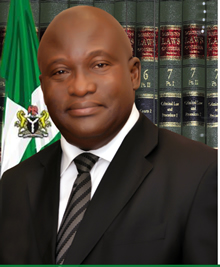Welcome to National Industrial Court of Nigeria | Established since 1976
Email: info@nicn.gov.ng
get easy access to all daily and future cause lists across all divisions in Nigeria and older data from the archive anytime and anywhere.
About NICN
The National Industrial Court of Nigeria is a judicial institution established in 1976 by the Trade Disputes Act (TDA) Cap 432, Law of the Federation of Nigeria (LFN) 2004. The Court became functional in 1978. Due to a number of shortcomings in the TDA which impacted adversely on the workings of the Court, the National Industrial Court Act, 2006, re-established the National Industrial Court as superior court of record with jurisdiction on labour and industrial relation matters.
Read morePROSPECT
MISSION STATEMENT
The National Court's mission is to be a specialised superior court of record dispensing social justice, setting standard for management and labour jurisprudence, promoting industrial peace and contributing to the total development of Nigeria.
VISSION STATEMENT
Our vision as earlier stated is to dispensing social justice, setting standard for management and labour jurisprudence, promoting industrial peace and contributing to the total development of Nigeria.

HON. JUSTICE B. B. Kanyip, PhD, FNIALS,
Attempt by Nigerian government to provide and efficient legal framework for the settlement of trade disputes dates back to 1941 with the promulgation of the Trade Disputes (Arbitration and Inquiry) (Lagos) Ordinance of 1941
The Nigerian Industrial Court (NIC) was established in 1976 to take care of trade disputes between employers and employees, workers and workers, trade unions and workers and trade unions and trade unions.
For 25 years, the National Industrial Court (NIC), remained practically moribund. The court sat only in Lagos for those years. It was clearly unknown and its decisions and pronouncements hardly respected. Its president, Justice Babatunde Adejumo testified: “On my assumption of office, I realized that there was nothing on record to show how superior the court is. Nothing to even make it the court that can meet the yearnings and aspirations of the founding fathers.
“When I came, we were in Lagos in a duplex that was allocated to the court since 1976. Whenever it rained we would not be able to sit because the place was always water-logged.”
That was in 2003. All that have changed now. the court is fast wearing new look with the establishment of eight divisions across the country.
“Today, we have established court in 24 divisions and registries. We have our Headquarters building situated in Abuja which is to be completed soon..”




